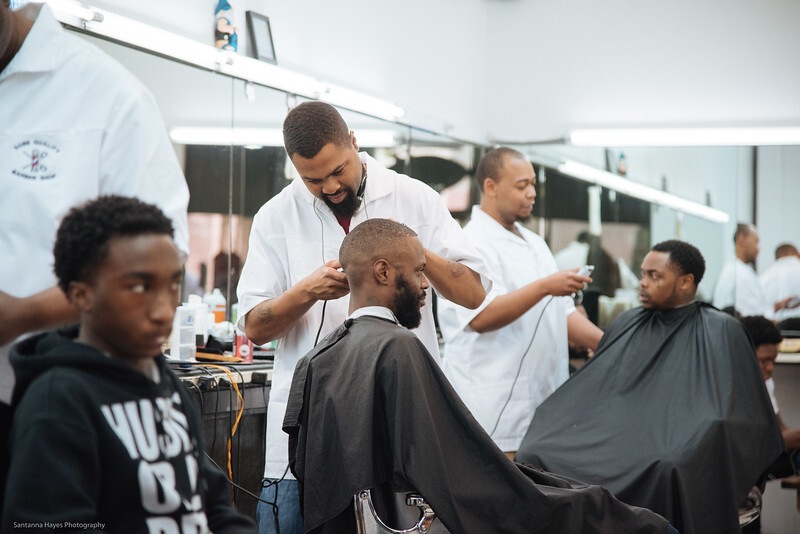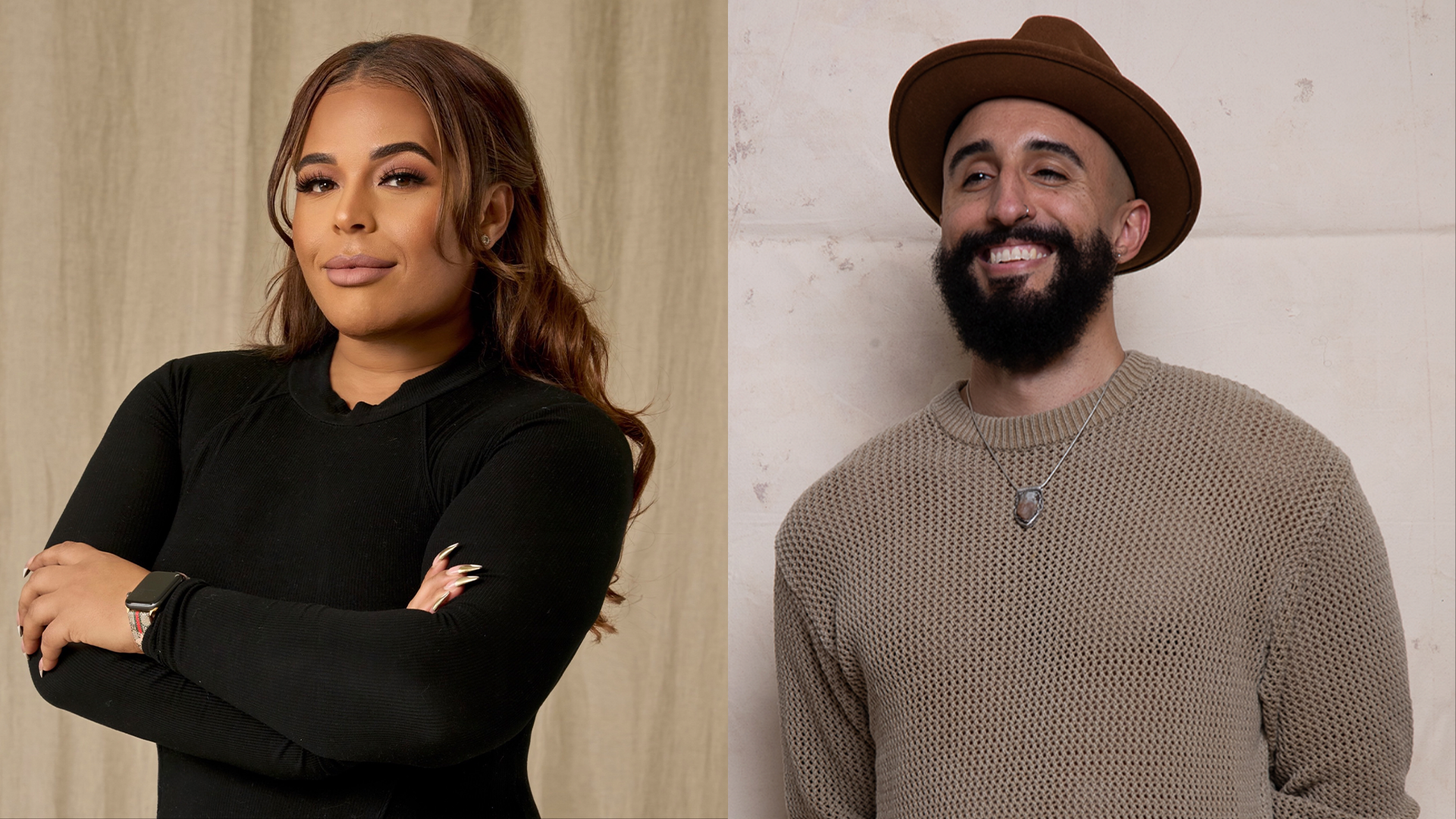To support the mental health of Black Men, The Confess Project was born. Now, it has become a space to tackle difficult conversations and begin a journey toward wellness.

Origin Story Of The Confess Project
As AfroTech previously told you, the mental health barbershop movement was founded by Lorenzo Lewis and stemmed from his upbringing. Lewis was born in prison to an incarcerated mother and later dealt with depression, anger, and anxiety. Lewis almost re-entered a correctional facility by the age of 17 before changing his life for the better.
“Being born in a prison to an incarcerated mother and facing my challenges throughout my childhood by going to a behavioral health hospital and being incarcerated at the age of 17, I recognized my challenges were unique,” Lorenzo said to AfroTech in an interview.
At the age of four, Lorenzo had the shared Black experience of going to the beauty salon, which was owned by his aunt at the time. Here, Lorenzo was exposed to a sense of community and good acts as it became a space to not only find grooming services but to feed those who were hungry. The supportive village was enhanced further for Lorenzo after he befriended a barber named Sylvester, who became his mentor and father figure. It was this encounter that catalyzed instilling a sense of belonging and community for more Black men.
“There was always a sense of belonging and a sense of support with him, and I always took that into my adult years. Even as I went to other barbershops growing up, I always looked for that Sylvester in other men for that same support, love, and gentleness and someone who also was a father figure. If we think about our incarceration rate, the substance abuse, families being displaced, people always looked at the barbershop to bring that sense of family and joy that we need in our lives,” Lorenzo said. “We’re hoping to allow the community to see that there is an opportunity to be heard and being seen by going to a barbershop. Also, it will impact and change the lifespan of Black community members daily.”
A Foundation For Supporting Black Men
Before launching what has now become a national grassroots movement, Lorenzo acquired a decade of experience, serving as a behavioral health technician. He recognized a lack of diversity among psychiatrists led to a lack of cultural competency, which would be vital to engage intentionally with patients. Lorenzo worked to compensate for what the system lacked, embracing cultural humility while becoming a listening ear to patients.
“There are four percent of psychiatrists that are identified as African Americans. I saw myself as a unicorn. As a young Black man who worked in the mental health space, worked in the hospitals with children and adults that struggle from substance abuse, severe mental illnesses, and behavioral disorders, I was exposed to what the system lacked, which was showing up for people, and connecting to their heritage, and understanding how their personal lifestyles also affected the reason why they were there,” Lorenzo said.
He continued: “The system didn’t have the robust wraparound support that it could have had. Working with patients, being a great listener, and supporting them during that journey and that stay in the hospital allowed me to recognize my strength and skills such as hygienic communication. I know to use this with barbers and gain insight on how we could improve the behavior in the behavioral system that we know today.”
A Commitment To Black Men
The Confess Project is a result of Lorenzo’s commitment to ensuring Black men are at the forefront of mental health services by empowering barbers across the nation.
According to information provided to AfroTech, over 1,300 barbers in over 46 cities have been certified through The Confess Project to become mental health gatekeepers. The process adopts four cornerstones including active listening, validation, positive communication, and stigma reduction.
By becoming certified, barbers are opening important conversations with Black men in a place of refuge while simultaneously waving a green light to reduce community violence, keep communities safe, and reduce domestic violence. Barbers are currently servicing up to 25 clients per week. According to research from The Confess Project, 90 percent have confirmed a preference for mental health services from the barbershop over a clinical service center or a therapist’s couch.
“Therapists and clinicians use a lot of the same type of therapy skills but we’re not training them to be therapists, but in fact, some of those skills are the cornerstones of listening such as leaning in, supporting folks, understanding negative language, how they could offend people, understanding positive language and also how to reduce stigma,” Lorenzo said. “We are helping take people away from their shame, and guilt while someone is cutting their hair and we’re allowing barbers to use those skills in a very intimate way. That’s the only time Black men will share that amount of intimate space with another man and not have their guards up. So, moving forward long term, we are building trust.”
The Confess Project's Goal
What’s more, The Confess Project offers a bi-monthly support group for barbers to talk more in-depth about the training, challenges they are facing, and how to move forward as business owners while keeping their customer’s mental health at the forefront. Recognizing the impact of its services among Black communities and partnering barbers, The Confess Project plans to reach 5,000 additional barbers and six million people annually over three years to continue reducing the stigma surrounding mental health.
The Next Generation Of Leaders
Lorenzo wants to ensure the work in the mental health arena will continue with the next generation.
Interested students can look toward an internship program to learn further about policies, and business practices, and work alongside leaders in the industry.
“We want to reach out to young people that desire to work in this space and to work and change policy around mental health — or who want to work in business. We want to build the next frontline and next generation of leaders,” Lorenzo said.

















